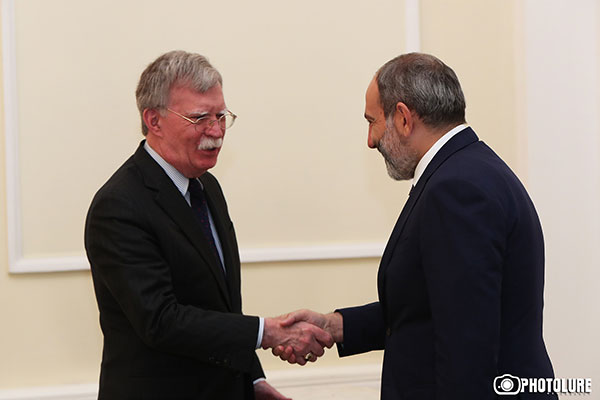It is already understandable that there will be important developments regarding the Artsakh issue next year. It is important to note once again that no Armenian leader has ever deliberately done something that would put Armenia and Artsakh in danger. Therefore, by not getting involved in the uninteresting and, I apologize, banal argument of “selling-not selling” and “giving up-not giving up,” as well as the fully “patriotic” ones, us citizens need to try and get answers for several important questions. Are the co-chairs of the OSCE Minsk group, as well as Bolton, Macron, Putin, and other international players discussing options with the new Armenian authorities that do not involve giving up the five regions? And just the opposite- are options being discussed that will keep the present state of the territories? Is Azerbaijan in agreement with such a decision that is beneficial for us? If these two questions have positive answers, then fine, we can say that our problems are solved and we have nothing to worry about.
If an option is being discussed that demands compromises which also includes giving up land, then it is important to know what is being offered to us instead of that? If this is simply regarding a blockade and some promises of a referendum, then that is not satisfactory. If the aforementioned players’ suggestions are not beneficial to us, then can we really reject them? And if we can, then for how long? If it is possible to keep the status quo for years and decades, then that is perhaps not the best option. But it is acceptable overall. And a question rises in connection to all of this: are we truly receiving the same amount of weapons now as we did until April of this year? These are concrete questions, which, unlike the authorities’ “the people will decide” promises and the oppositions’ “not one piece of land” exclamations, give us the opportunity to face reality.
If we are going to be honest, the people will not be deciding anything. The government that enjoys the majority of people’s trust will be deciding things. And it is very desirable that these authorities will not make mistakes. The problem is that if you make a mistake in the international field, no one, including your colleagues and allies, will tell you that you were wrong. They keep your mistake in a special drawer and then demand compensation from you at the appropriate opportunity. Therefore, for example, assurances of positive relations from Putin are not critical. What’s more important is the price you will pay in the future for making a mistake. Now, of course, nothing terrible has happened. We simply need to be aware of this.
Aram Abrahamyan




















































